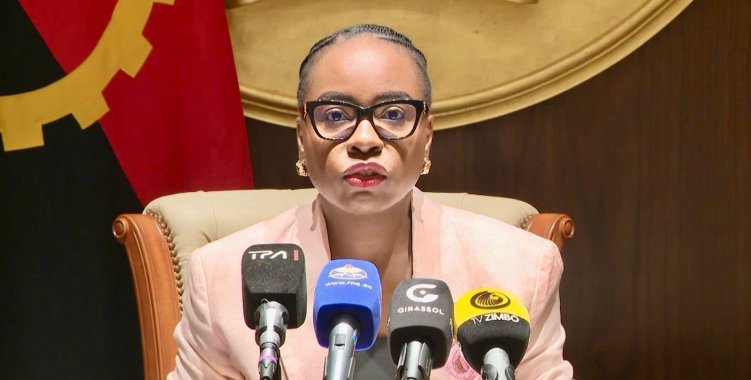Vera Daves de Sousa spoke to journalists on the sidelines of the delivery of the proposed General State Budget for 2024 (OGE-2024), this Tuesday, at the National Assembly.
The minister highlighted that the objective of assuming realistic and conservative assumptions "is precisely to protect the budget proposal as much as possible from possible shocks".
"Not only with regard to oil production, in which we prepared the OGE proposal with 1.060 million barrels, but also with regard to the reference price, in which we consider 65 dollars per barrel", she stressed, also pointing out risks such as possible slippages in production and price, "which then make its execution unfeasible and lead to captivations and budgetary execution below what is our expectation".
The holder of the Finance portfolio also said that the Government in this budget proposal, with revenues and expenses amounting to 24.7 billion kwanzas, focused as much as possible on the actions that are underway, with a view to completing them, and also on a logic of maintaining what already exists and rehabilitating what is necessary.
Improving the quality of services and the number of professionals available to the social sector was also considered in the OGE2024 proposal, said Vera Daves de Sousa, also highlighting that the combination of these factors and close monitoring will make it possible to mitigate risks, which, she noted, will continue to exist.
According to Vera Daves de Sousa, there are risks associated with the price and production of oil, the geopolitical context, which can impact the price not only of Angola's main export commodity, but also on the price of agricultural raw materials.
"For example, fertilizers and seeds and everything related to agribusiness, risk related to interest rates, we have financing that pays variable interest rates, if we see interest rates in international markets performing above what we expect, we should pay more interest, therefore, we will have more debt service than we are expecting, risk associated with volatility and exchange rate market, our budget is also sensitive to exchange rate variations", listed the minister.
The minister reiterated that there are a set of risks that the Government will monitor and seek to mitigate "as much as possible to reduce the likelihood of the budget not being executed in full".
Regarding social conditions and protection of families, the Minister of Finance highlighted that the work is aimed at increasing wages within the limit of budgetary capacity.
"We would like to make a bigger adjustment, but the budget space allowed us to make a 5 percent adjustment, this is a way of addressing this challenge, making it possible for families to have a higher income, at least those whose family members are public servants", she added.
"Another avenue that affects not only public servants, but all citizens who have a formal job, is related to the Labor Income Tax (IRT), where we are proposing to increase the exemption threshold, currently worth 70 thousand kwanzas", said the same person responsible.
"What we are proposing now is 100 thousand kwanzas, so that anyone earning up to 100 thousand kwanzas also does not pay IRT, it is a way of giving some relief to families through this fiscal measure", said Vera Daves de Sousa, stating that "going further would imply having less revenue and more capacity to address the challenges" still necessary even in the social area.
According to Vera Daves, the proposal also increases the Ministry of Agriculture's budget by 80 percent, as a strong sign of its commitment to agribusiness and food security.
Vera Daves de Sousa highlighted that the Government forecasts growth of 2.8 percent in 2024, essentially anchored by the non-oil sector, which is expected to grow 4.6 percent, and a decrease in the oil sector with 2.6 percent.
Regarding the fiscal balance, the Government predicts a surplus of 0.02 percent, around 17.5 billion kwanzas, seeking throughout the 2024 financial year to create a combination of internal and external sources of financing, anticipating that the internal market should be preferential, "without prejudice to the financing lines that are already contracted and new disbursements from these lines are interpreted as revenue from external financing".







